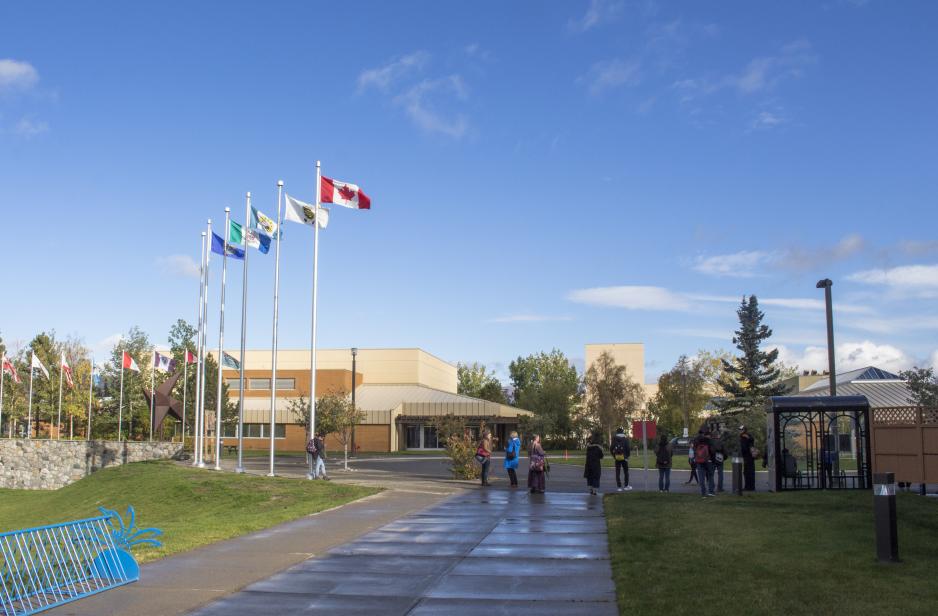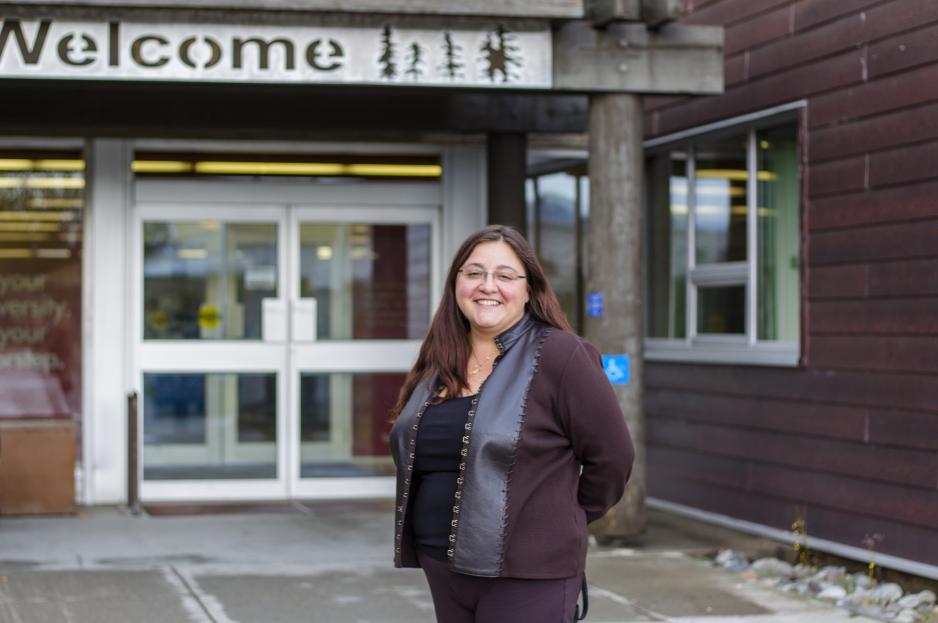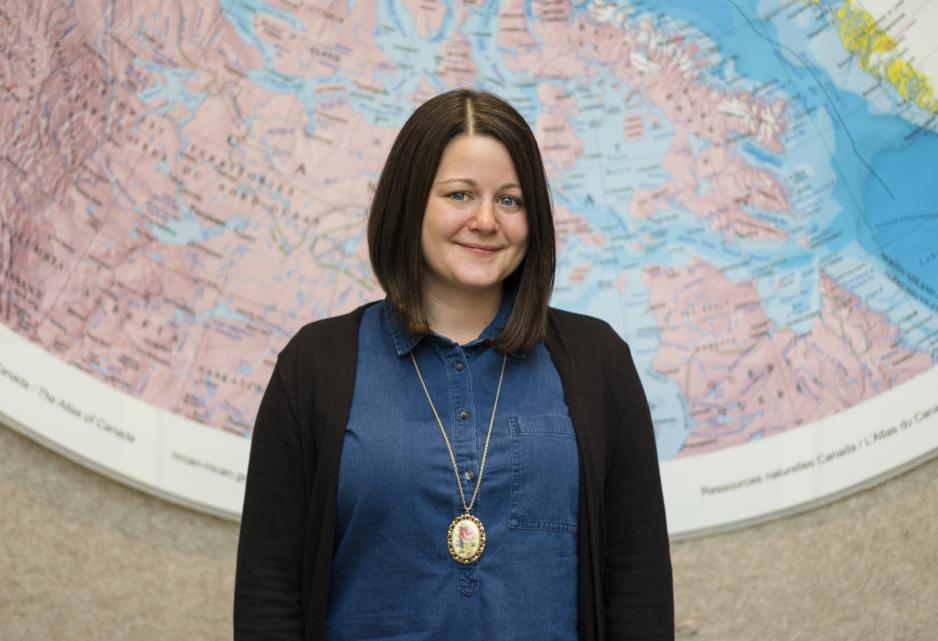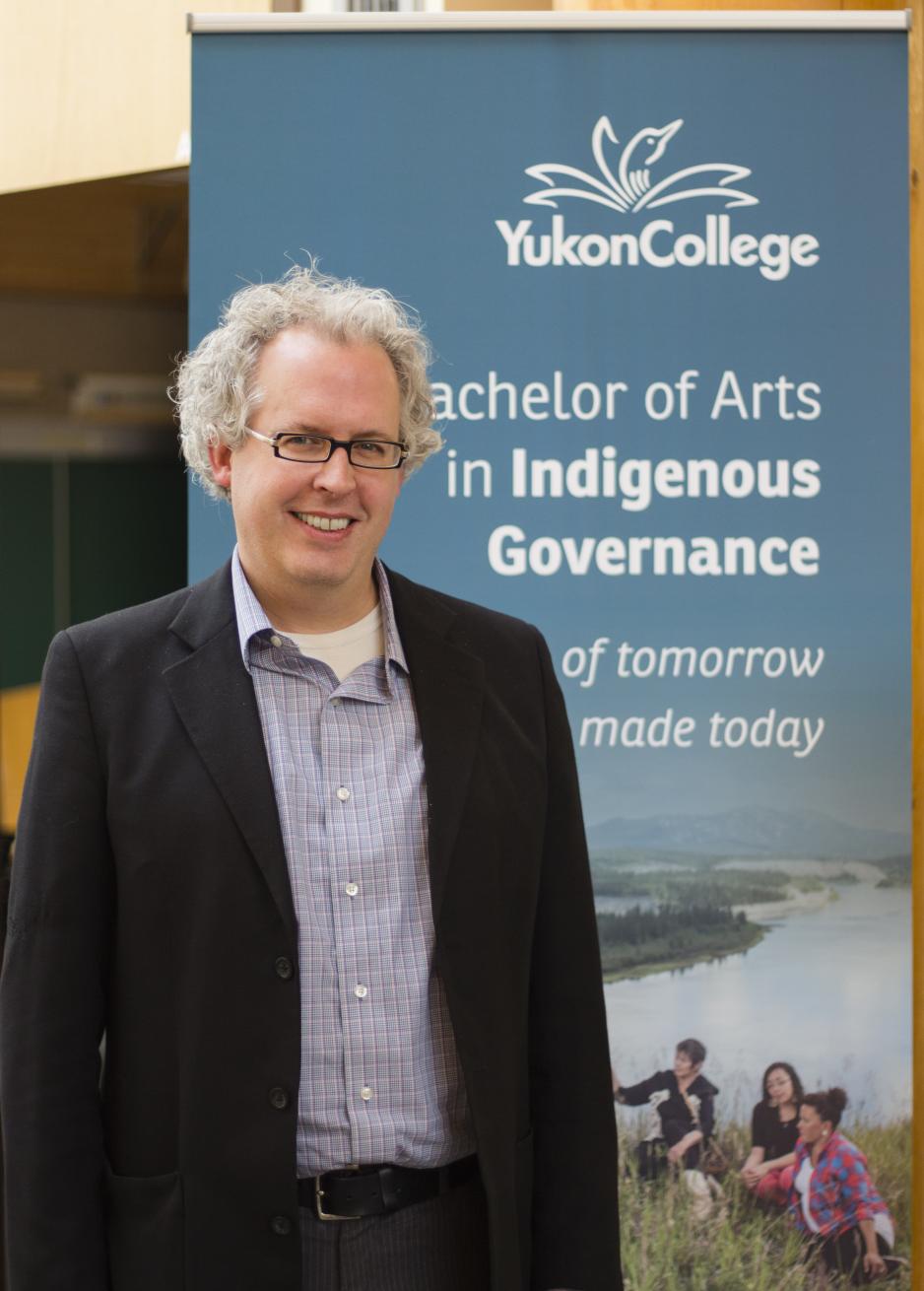Canada: New Indigenous governance degree program off to promising start

Indigenous governance program responds to community needs; a hit with students.
Nestled atop a hill a five-minute drive from downtown Whitehorse, the Yukon College campus is alive with energy as students bustle to and from classes. Among the many students wrestling with the first few weeks of a new semester, 16 have recently started Yukon’s College’s brand-new Bachelor of Arts in Indigenous Governance.
Paralleling the College’s transition to a university, this program will be the first undergraduate degree independently credentialed by a northern post-secondary institution anywhere in Canada. Billed as a program made in the Yukon for the Yukon, the program has attracted a lot of excitement from media, faculty, and students alike for its innovative design and course offerings.
Made in the Yukon, with Yukon First Nations
During the design and creation of this degree program, those building the program underscored the need to create something that would be useful to Yukon First Nations, respond to community needs, and reflect the northern context. This, in part, helps distinguish the program from other Indigenous governance programs elsewhere in Canada.
When HNN had the chance to speak with Tosh Southwick, the Associate Vice President of Indigenous Engagement and Reconciliation at Yukon College, she emphasized the need to consider the unique political context of the region.
Unlike the rest of Canada where many First Nations are still governed by the colonial-era Indian Act, 11 of the Yukon First Nations are self-governing. This means that they inhabit a very different political space—one that, according to Southwick, is not reflected in existing programs elsewhere in Canada.
“The program needed to be something based on the Yukon context because we can’t take a governance course at the University of Alberta because it’s Indian Act and we don’t deal with that.”
As a result, Yukon College built the program from the ground up in partnership with local First Nations in a way that Andrew Richardson, the Dean of Applied Arts, believes is unique.
"We built this thing in partnership with Yukon First Nations in a way that other institutions just don’t do, or at least they don’t do it yet. While we had to demonstrate the quality of the program to the external advisory council, we really had to demonstrate the relevance of this program to First Nations representatives."
Richardson also wanted to avoid the scenario common in universities where academics are sequestered in a room and design a program with little to no input from the outside world.
"We wanted to make sure that [Yukon First Nations] were believing in this program and that’s led to a degree that wasn’t just created in a cliché ivory tower."

Not just for the Yukon
Despite the focus on the experience of First Nations in the Yukon, Southwick argues that this program could still be beneficial to Indigenous peoples elsewhere in Canada or the world.
"We worked with our First Nation partners on how to build a framework on how to integrate Indigenous world views into modern day academia—that is very versatile. You could put Inuit worldviews in there, Sami worldviews in there. So, the program is very unique in that way."
The program also tackles the large questions of reconciliation between Indigenous peoples and settlers and Indigenization—both of which are very politically salient in Canada. For Southwick, this means that the greater diversity of students who enroll in the program, the better.
"Where you have most programs in Canada that are very much targeted towards Indigenous students, this program is targeted more generally at those who want to work in Reconciliation and Indigenization. And so, it’s not a closed program, anybody can apply—in fact we want to see everybody in there. We hope to see Metis students, Inuit students, and First Nations students from the south."
A more accessible program
This diversity of students is not without its challenges, however. In addition to designing a degree program that would be relevant and resonate with a large cross-section of people, it also had to account for the diversity of student backgrounds.
This translated into a more flexible admissions system that valued non-traditional paths towards post-secondary education. The importance of this was underlined by Southwick because, as she explained, some potential students have years of professional experience with their First Nation government but do not necessarily have a high school degree whereas others might have come directly from high school.
This also contributed to the decision to make this a three-year undergraduate program. This is in contrast with many other Indigenous governance degrees in Canada which are at the graduate level and therefore require a bachelor’s to be accepted. Maximizing the potential value of the program for those who enrol in it was a really important factor for Richardson:
"We have 11 self-governing First Nations in the Yukon and 14 in total. They all have aspirations in the area of self-determination and we thought that it makes more sense for them, in a way, to gain that knowledge and expertise at the undergraduate level,” this, he argues, is in contrast to other programs where “you have to have a generic arts degree already before you get, you know, to that kind of content."

Marrying practice and theory
Another key component of the program is a marriage of very practical elements with theoretical insights.
The College’s one-year First Nations Governance and Public Administration (FNGPA) certificate already provided a strong, focused, and practical approach. With the degree program, however, there was a decision made to bring in a stronger theoretical component.
According to Rhiannon Klein, one of the instructors in the program, this was one of the benefits of developing the degree program. “By introducing the degree and the third year, we’ve developed courses that bring a lot more of the theoretical perspective.”
One of the classes that illustrates this marriage of practical and theoretical is a class taught by one of the program’s instructors called “Bridging Knowledges.”
Speaking with HNN in the brightly lit hallway outside the classroom itself, Klein explained that "This class is actually a philosophy class and looks at the lenses of both Indigenous world views and Western world views; how they collide, how they can be bridged, and how they can be brought together."
Despite this theoretical beginning, she stresses that the class has a strong practical component.
"The class looks at some of the historical colonial impacts of Western knowledge on Indigenous ways of knowing and what that looks like in application. So, we start from a philosophical-theoretical perspective and, by the end of the class, we’re applying it to real world situations and what that looks like in the Yukon, for example."
The program also ends with a Capstone project in which students have the chance to work on the ground with one of the First Nations governments in the Yukon. According to Southwick, this was one of the elements that the First Nations strongly pushed for during the creation of the program.
Student reception
Among the students in the program, a fair number were already enrolled or had completed the Indigenous governance certificate and had an idea of what to expect. Overall, the reception from students so far appears to have been very positive.
In the final stretch of a Northern Studies Diploma, Shara Layne was exposed to the idea of enrolling in the new degree program by one of her instructors. To her, the program has many strengths including, for example, the range of classes on offer.
This includes the "the mix of creative and standard essay assignments, open and supportive classes, brilliant teachers, and flexible classes; night classes and zoom or the students in the communities."
In addition, Layne also highlighted the importance of bridging theory and practice in an email to HNN:
"It is important to integrate knowledge into practice and gain an understanding of working in the field . . . It provides students the opportunity to practice what we have learned and understanding the reality of working in the field and gaining connections in the community."
Challenges and future plans
The flexibility of classes offered is partially due to the challenges of trying to offer classes that are accessible to those across the territory who may not have the time to make it to Whitehorse in person. As a result, distance learning and course flexibility have been key components of the program.
This is still a work in progress, however, as not all classes are currently available in various formats.
Another challenge is providing options for students who want to continue after they finish their Bachelor of Arts in Indigenous Governance. As a response, the College is working towards creating partnerships that will allow students to ladder into graduate programs elsewhere in the country.
Even though it is not ruled out as a future option, there are currently no plans to create a graduate program as part of the future Yukon University.
After overcoming the hurdles of launching a new program (and the larger transition to a university), Dean Richardson is adamant that "as an institution, we’re prepared."

